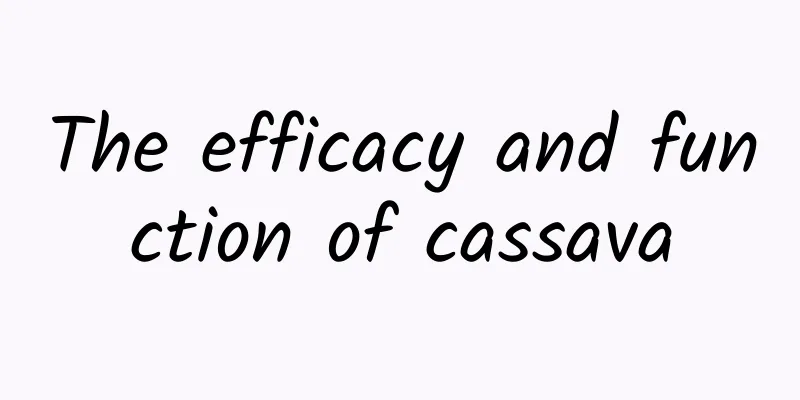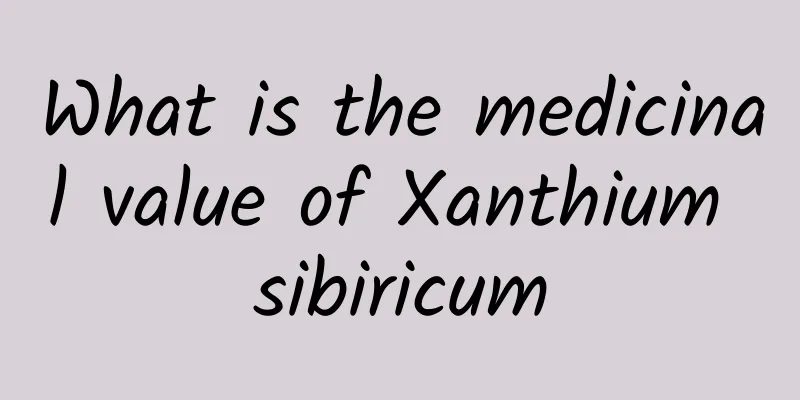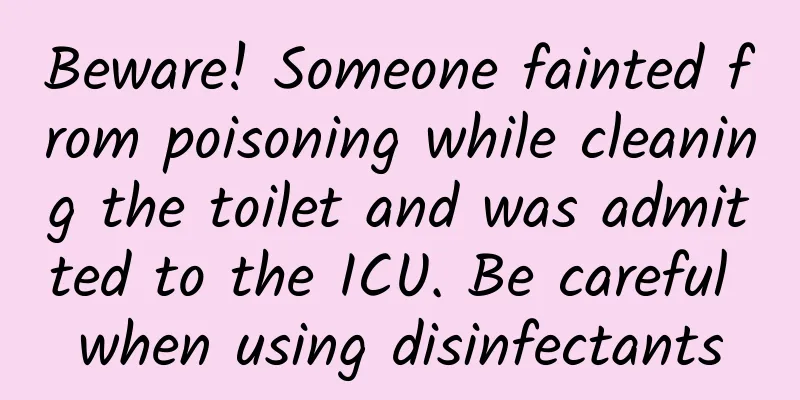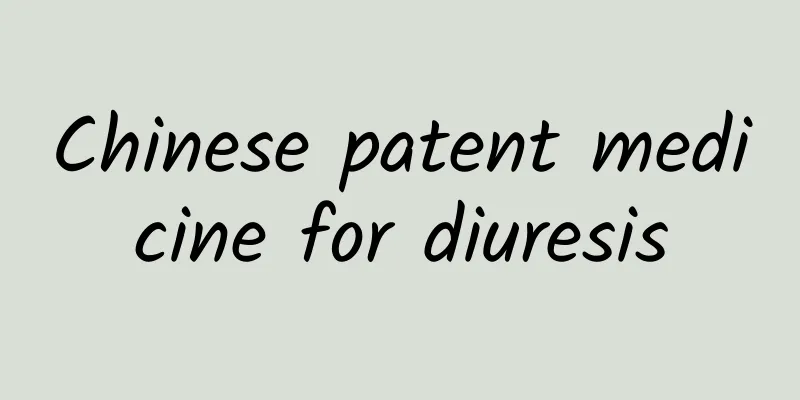How long does it take for Chinese medicine to be absorbed?
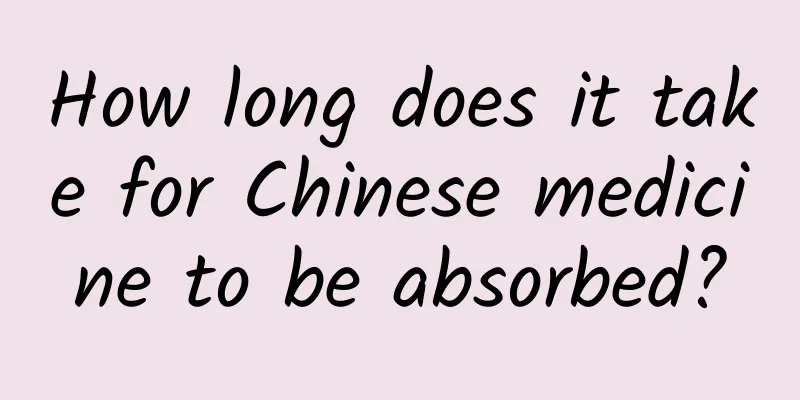
|
How long does it usually take for Chinese herbal medicine to take effect? Experts say that since everyone's physical fitness is different and their absorption capacity for medicines is also different, it is difficult to determine the time. The actual situation still depends on the severity of your condition. If the condition is relatively mild, you don't need to drink it for a long time. If the condition is relatively serious, you need to recover slowly. Traditional Chinese medicine focuses on syndrome differentiation and treatment, and observes the actual effect of your medicine and then makes corresponding changes to the prescription. Generally, three consecutive treatment courses are required, with one course of treatment lasting seven days. Each dose of the medicine should be taken once in the morning, noon and evening to achieve a satisfactory therapeutic effect. If the disease is not cured, continue to treat it intermittently. If the disease is cured, stop taking the medicine immediately! In addition, because Chinese medicine conditioning takes a relatively long time, you should avoid spicy, greasy, and irritating foods during the conditioning period. At the same time, you should pay attention to arranging your time reasonably, increasing nutrition, and actively participating in exercise. Time to take Chinese medicine 1. Take before meals Generally, take the medicine 30 to 60 minutes before meals. If the main symptom is in the lower part, the medicine should be taken before meals to make the drug effect easier to be delivered, such as kidney deficiency or diseases below the waist. For the treatment of gastrointestinal diseases, it is also advisable to take medicine before meals, because when the stomach is empty, the medicine can directly come into contact with the digestive mucosa, quickly pass through the stomach into the intestines, and thus be more digested and absorbed and fully exerted, without being diluted by the food in the stomach and affecting the efficacy of the medicine. 2. Take after meal Generally, take the medicine 15 to 30 minutes after a meal. If the main symptom is on the upper part, the medicine should be taken after meals. For example, if you are treating symptoms above the heart, lung, chest, or stomach, taking the medicine after a meal can increase its efficacy. 3. Eat on an empty stomach Decoctions with nourishing and health-preserving effects should be taken on an empty stomach in the morning to facilitate adequate digestion and absorption. Medicines used to eliminate parasites or treat limb blood vessel diseases should also be taken on an empty stomach, which can allow the medicine to enter the intestines quickly and maintain a higher concentration to quickly exert its medicinal effect. The same is true for decoctions with laxative effects to enhance the efficacy of the medicine. 4. Before going to bed It is usually taken 15 to 30 minutes before going to bed. Medicines that nourish the lungs and stomach, soothe the mind, calm the nerves and aid sleep, as well as those for food stagnation, chest diseases, etc. Common problems with taking Chinese medicine Taboos of taking Chinese medicine When taking Chinese medicine, in order not to affect the efficacy of the medicine, many taboos need to be paid attention to, such as not taking spicy and greasy foods. In fact, in addition to spicy and greasy foods, patients also have many things to pay attention to when taking Chinese medicine. 1. During the period of taking Chinese medicine, you must remember not to eat spicy food, such as fish, shrimp, crab and other seafood, as well as beef and other mutton-smelling food. Because these foods contain heterosexual proteins, they will dissipate the medicinal power and easily cause side effects such as skin allergies. This must be remembered. 2. Do not drink strong tea while taking Chinese medicine, because strong tea contains more tannic acid, which will reduce the efficacy of Chinese medicine. It is especially important to note that many people have the habit of eating donkey-hide gelatin and white fungus. Donkey-hide gelatin and white fungus are also traditional Chinese medicines. Eating them with strong tea will hinder the body from digesting and absorbing their ingredients. If the patient has the habit of drinking tea, it is recommended to drink tea 2 to 3 hours after taking Chinese herbal medicine. 3. During the period of taking Chinese medicine, remember not to eat cold, greasy, or spicy food, because eating cold food will affect the gastrointestinal absorption of the medicine, and is not conducive to strengthening the spleen and stomach; greasy food can easily cause intestinal stagnation, which is not conducive to the body's absorption of the medicine; spicy food ingredients can easily produce phlegm and irritate the gastrointestinal tract. It should be noted that spicy food is not just very spicy food, but also includes hot condiments such as onion, ginger, garlic, and pepper. 4. You cannot eat radish while taking Chinese medicine, because eating carrots while taking medicine will easily reduce the efficacy of the medicine and will not have a therapeutic effect. However, this depends on what kind of Chinese medicine you are taking. 5. In fact, the dietary restrictions of Chinese medicinal materials are not for health care. It depends on the patient's own condition. For example, patients with pustular inflammation cannot eat irritating foods, patients with three highs are forbidden to eat greasy foods, and patients with sensitive stomachs are forbidden to eat cold foods. Conclusion: According to the article, we know that the time for Chinese herbal medicine to take effect is actually hard to say. It depends on the type of herbal medicine and the severity of the symptoms. But everyone must remember that when taking it, you must be careful not to eat overly spicy food or cold food, because these foods will affect the body's absorption of the medicine and reduce the efficacy of the medicine. |
<<: The efficacy, effects and contraindications of Liu Jinu
>>: Pictures of folk herbal medicines for relieving cough and reducing phlegm
Recommend
What are the effects of Eucommia wine?
Eucommia ulmoides is a kind of traditional Chines...
The efficacy and function of dodder
Dodder can not only supplement the body's nut...
Chang'e 6 is launched today! Reviewing Chang'e's 17-year lunar exploration feat!
On May 1, the National Space Administration relea...
How can hotels use event content for marketing?
In November 2011, Google announced that it would ...
What are the benefits of drinking mint water?
Mint is very familiar to many people. The taste o...
A comprehensive inventory of model hard-working animals, dung beetles are on the list?
Today is the third day of the May Day holiday. Wh...
Can eating wolfberry improve sexual function?
We often taste wolfberries. They can be called Ch...
The efficacy and function of Artemisia pine
Artemisia pine can not only supplement the body&#...
Can the elderly eat ginseng in summer?
Ginseng is a traditional Chinese medicine and als...
The efficacy and function of the two-pointed
In fact, the occurrence of many human diseases is...
The efficacy and function of oil residue fruit
After thousands of years of sedimentation and acc...
The efficacy and function of star anise
Star anise is a very common Chinese medicine and ...
How convenient would it be to use robots to take care of you after retirement?
On September 13, the decision to gradually delay ...
What is the traditional Chinese medicine prescription for replenishing kidney yang deficiency?
Kidney deficiency is a very common phenomenon. Bo...
One picture to understand | Don’t pick these “king mushrooms” in Beijing, they are poisonous!
It is the peak season for wild mushrooms. Ingesti...

